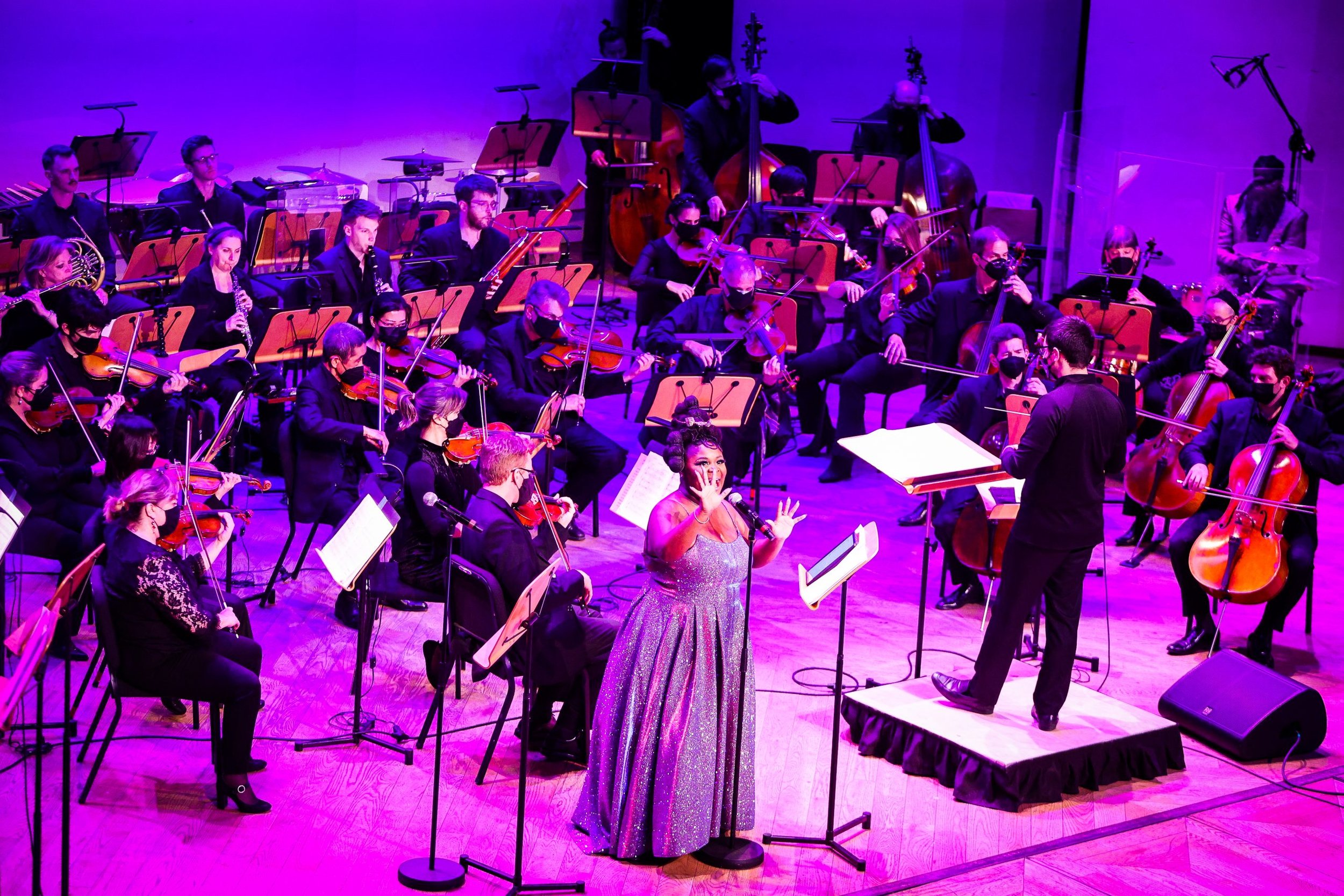Nicki Bluhm Longs for the Simpler Life

While on tour, Nicki Bluhm and the Gramblers try to establish some normalcy, and are drawn to places less crazy than San Francisco in 2015.
Nicki Bluhm is sitting in a Home Depot parking lot in Milwaukee. It’s noon and she and her band The Gramblers can’t park the tour bus in front of the venue for another three hours, so she has some time on her hands. “We’re probably going to hit up the Whole Foods,” she says. Days like this don’t happen often on tour, but when they pop up, she tries to do something normalizing—take a yoga class, go on a bike ride, play guitar in the park.
“Sort of like what you’d do at home, but in a totally new place,” she says.
Nicki Bluhm and The Gramblers will play Tipitina’s Sunday night, and when they’re not leading the wild life on this tour they’re hiding “golden tickets” to the show in every city they’re headlining. Each day, a different member of the band hides a pair of tickets somewhere in the city and posts a clue to their location on Instagram. “They’ve been found in every city so far,” Bluhm says.
The day before, the band played Madison, Wisconsin, which prompted the San Francisco-based Bluhm to think to herself, “Wow, this is such a slower pace. I could totally get down with this.” San Francisco is going through many of the same issues that New Orleans, Austin, and other major American cities as technology, changing economic bases, and renewed commitments to their downtowns have caused gentrification and threats to the cities’ historical characters.
“It feels really intense,” she says of San Francisco. “It’s starting to feel like Manhattan. It’s hard to live there. You can’t really be soft. I’m fortunate—I live out by the ocean in San Francisco, so where I live is very mellow.”
Those San Franciscan and Californian roots remain clearly evident on Loved Wild Lost, the band’s most recent album. The early ‘70s country rock of Little Feat, The Eagles and Gram Parsons gives the band its musical language, and Bluhm points to Linda Ronstadt as a singing model. “She only sang cover songs, but every song sounded like her own,” Bluhm says. “She owns it. She is really very good at translating music. It’s part of the art of singing. If you can’t get inside of a song and feel it—that’s the other half, along with the technical side of singing.”
The album and song titles point to hard emotional times for Bluhm and the band, but she says it’s not so. Still when she first heard some of the new songs, she wondered if her husband and bandmate Tim Bluhm was trying to tell her something. She, Tim Bluhm, and Deren Ney write the songs, lyrics included, but she takes comfort in the fact that the same person who wrote “Heartache” also wrote “Love Your Loved Ones.”
Bluhm finds singing other people’s songs easier because she’s less likely to get trapped in her own head, second-guessing whether songs are too revealing or are clear enough. Fortunately, Tim Bluhm and Ney have become good at writing for her, so she doesn’t feel a need to tweak their lyrics to suit her. Like Ronstadt, Bluhm looks for the emotional truth in a song and dramatizes it, whether it’s her truth or not.
Sometimes that’s a challenge, particularly in some of Tim Bluhm’s songs since they’re often idea- rather than person-based. There’s no character expressing his or her point of view in “Love Your Loved Ones,” for example, which makes it harder to be sure of how to sing it. “Heartache” is very precisely written, she says, and doesn’t leave much room for inflection or her to nuance her performance. It was written specifically as a Linda Ronstadt-type song, but “she can just crank,” Bluhm says. “Her voice is powerful. I’m still working on those techniques.”
Bluhm rides horses, but “Queen of the Rodeo” doesn’t reflect her story or reality either—not in its specifics, anyway. “It was just the image of the rodeo queen and how alluring it was,” she says. “Upon completion of the song, I realized it was much more of an autobiography on a sub-conscious level—an underdog trying to get ahead."
As a San Franciscan, The Grateful Dead is in her DNA. She missed their final shows because she was hiking and playing the High Sierra Music Festival. She’s seen and heard them be ragged, but she’s also heard remarkably beautiful moments. When the four-part harmonies on “Ripple” and “Box of Rain” confounded her, she asked the Dead’s Phil Lesh about them. “He said, Don’t worry about it. We’ve never been able to replicate that ever again,” Bluhm remembers.
“There’s a magic to The Grateful Dead that they didn’t worry about harmonies. They had bigger fish to fry, and there’s something endearing about that. You know they can do that—the records prove they can—but they’re so much more into exploration and risk in a live setting.”
She’s not sure that she’s ever had that moment of capturing something fleeting and magical in the studio. The closest Bluhm can think of is Duets, the acoustic album she cut with her husband. They wanted something new for the merchandise table and decided to make the album, but its timetable was dictated by the tour, which was already scheduled.
“It wasn’t rushed, but we only had two days to record 10 songs, and when it was done, we were Okay, we did it,” she says. “It definitely had that feeling of good accomplishment, and like we’d done something special.”






